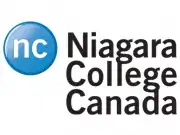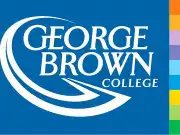Health Programs in Canada for International Students
- Advantages of Studying Health Programs in Canada
- Formats and Levels of Health Programs in Canada
- Top Universities for Health in Canada
- How to Apply for Health Programs in Canada
- Documents Required for Health Programs in Canada
- Tuition Costs for Health Programs in Canada
- Scholarships and Grants for Health Programs in Canada
- Career Prospects After Health Studies in Canada
- Is It Worth Studying Health Programs in Canada
- Frequently Asked Questions

Diploma - Recreation Therapy
Niagara College InternationalAre you looking for a job where you can help people have a better quality of life?
You will use meaningful recreation and leisure education, counselling, and experiences as a Recreation Therapy Professional to promote, restore, rehabilitate, and/or maintain quality of life and well-being.…

Diploma - Recreation Therapy (Fast Track)
Niagara College InternationalPut yourself on the fast track! Complete your Recreation Therapy diploma in four terms. Students complete terms one through four as a continuous program with no breaks.
Are you looking for a job where you can help people have a better quality of life? You will use meaningful recreation and…

Bachelor (Hons) - Behaviour Analysis
George Brown College of Applied Arts and TechnologyThe four-year Honours Bachelor of Behaviour Analysis program at George Brown College delves deeply into the field of Applied Behaviour Analysis (ABA), which takes a scientific and methodical approach to shaping behavior for the better.
For over 15 years, we have served the Toronto area by…

Certificate - Dental Office Administration
George Brown College of Applied Arts and TechnologyIf you want to learn the administrative and clinical skills you need to succeed in a dental office, go no further than George Brown College's Dental Office Administration program.
If you're enrolled in our Dental Office Administration program here at the Daphne Cockwell Centre for Health…

Advanced Diploma - Child And Youth Care
George Brown College of Applied Arts and TechnologyThe Child and Youth Care curriculum at George Brown College combines best practice concepts and a relational approach based on the UN Convention on the Rights of the Child and the Ontario Association of Child and Youth Care Code of Ethics.
Students learn to engage with children, adolescents,…

Advanced Diploma - Massage Therapy
Humber College Institute of Technology & Advanced Learning, Toronto, CanadaThe advanced diploma program in Massage Therapy at Humber College provides you with the in-depth academic preparation and hands-on practical experience needed to become a valuable part of a health-care team.
Working at our cutting-edge facilities, you'll get the knowledge and skills needed…

Diploma - Fitness and Health Promotion
Humber College Institute of Technology & Advanced Learning, Toronto, CanadaWith skilled, industry-connected teachers, Humber's Fitness & Health Promotion certificate program puts you at the forefront of the healthy revolution. Anatomy, physiology, biomechanics, business administration and marketing, nutrition, injury management, special event planning, and other skills are…

Certificate - Addictions and Mental Health
Durham CollegeThis highly specialized program was created and is kept up-to-date in collaboration with recognized experts in the fields of addiction and mental health, such as Lakeridge Health Corporation, and is intended for students with prior, relevant education.
The Canadian Addiction Counsellors…

Diploma - Esthetician (Spa Management)
Durham CollegeStudents can learn the skills necessary to launch a successful career in the growing spa and health sector by enrolling in the Esthetician - Spa Management program. This program will give you the theoretical and practical information you need to help people improve their appearance and self-esteem…

Diploma - Fitness and Health Promotion
Durham CollegeThose interested in a job that extends beyond the confines of a gym will benefit from the Fitness and Health Promotion program's emphasis on working with people of varying ages and abilities.
To ensure that graduates are well-equipped to join the workforce, the curriculum strikes a good…
Advantages of Studying Health Programs in Canada
Canada is rightfully considered one of the best countries for obtaining education in healthcare. It offers high-quality academic programs recognized worldwide, as well as opportunities for internships at leading medical institutions and research centers.
A special advantage for international students is the large number of English-taught programs. Nearly all universities in the country offer courses taught entirely in English, making Canada particularly attractive for students from different countries. Most programs are taught entirely in English, which significantly simplifies adaptation.
The main advantages of studying health in Canada include:
- Quality education — Canadian diplomas in health are recognized by employers and academic institutions worldwide;
- Large number of English-taught programs — most courses are taught in English, which is especially convenient for international students;
- Safety and high standard of living — Canada consistently ranks among the safest countries in the world;
- Developed infrastructure for practice — universities closely collaborate with clinics, hospitals and research centers;
- Immigration opportunities — graduates of in-demand fields, including health programs, may qualify for permanent residency.
Healthcare education in Canada includes not only theoretical training but also active practical components through university collaborations with hospitals, medical institutions and research laboratories. Graduates acquire in-demand knowledge and skills recognized worldwide.
Moreover, Canada is known for its high level of safety, stable economy and comfortable living and study conditions. The multicultural environment allows students to feel part of an international community.
Formats and Levels of Health Programs in Canada
Canada offers a wide range of health study programs:
- Bachelor's Degree — duration 3-4 years, basic theoretical training and initial practical skills.
- Diploma programs and certificates — practice-oriented courses lasting from 1 year.
- Master's Degree — 1-2 years of advanced study and research.
- PhD — preparation of research personnel, duration 3-5 years.
- Preparatory programs — for those who need to improve language skills or academic preparation before main studies.
Popular fields: public health, medical sciences, nursing, physiotherapy, pharmacy, biomedicine.
Top Universities for Health Programs in Canada
| University Name | Program Name | Fees for International Students (CAD/year) | World Ranking* | Comment |
|---|---|---|---|---|
| University of Toronto | Bachelor of Health Studies, Public Health, Medicine | 60,000 — 75,000 | Top 30 | One of Canada's oldest and most prestigious universities |
| McGill University | BSc in Global Health, Medicine, Public Health | 50,000 — 68,000 | Top 50 | Recognized as a world leader in medicine |
| University of British Columbia | Bachelor of Health and Exercise Sciences | 45,000 — 60,000 | Top 40 | Strong scientific research and infrastructure |
| McMaster University | Health Sciences, Public Health, Medicine | 50,000 — 65,000 | Top 150 | Known for innovative teaching methods |
| University of Alberta | Bachelor of Public Health, Nursing, Medicine | 45,000 — 58,000 | Top 120 | Strong programs in medical sciences |
* According to QS and Times Higher Education international rankings
How to Apply for Health Programs in Canada
The application process consists of several steps:
- Choosing a program and university — study the requirements of specific programs.
- Preparing documents — collecting academic transcripts and certificates.
- Language tests:
- IELTS Academic — minimum score usually 6.5-7.0;
- TOEFL — from 85 points;
- Duolingo — accepted at some universities.
- Interview — not required for all programs but common for medical fields.
- Additional exams:
- MCAT — mandatory for undergraduate medical programs;
- GRE — for master's programs in health research.
It's important to check with universities in advance whether a preparatory program is required for admission.
Documents Required for Health Programs in Canada
The following documents are required for application:
- High school diploma or degree with supplement;
- Official transcripts;
- Language test results (IELTS, TOEFL, Duolingo);
- Motivation letter;
- Recommendation letters;
- CV or resume (for master's and higher);
- Results of additional exams (MCAT, GRE) if required;
- Passport with sufficient validity period;
- Medical certificate (for some programs).
Some universities may request essays or portfolios, especially for interdisciplinary programs.
Tuition Fees for Health Programs in Canada
Tuition fees vary by university and program:
- Bachelor's: from 30,000 to 75,000 CAD per year;
- Master's: from 25,000 to 60,000 CAD per year;
- PhD: from 20,000 to 50,000 CAD per year;
- Certificate programs: from 15,000 to 35,000 CAD.
Additional expenses:
- Accommodation: 10,000 — 15,000 CAD per year;
- Food: about 3,000 — 6,000 CAD per year;
- Transport and personal expenses: 2,000 — 4,000 CAD per year;
- Health insurance: from 600 CAD per year.
The total estimated costs range from approximately 50,000 to 100,000 CAD per year.
Scholarships and Grants for Health Programs in Canada
Canada offers various types of financial support:
Academic scholarships (for academic achievements):
- International Entrance Scholarship;
- University of Toronto International Scholars Program;
- UBC Outstanding International Student Award.
Financial aid (based on financial need):
- Need-Based International Student Bursaries (at some universities).
Special scholarships:
- Scholarships for women in science;
- Scholarships for future public health specialists.
University grants:
- McGill Entrance Scholarships;
- University of Alberta International Scholarships.
Criteria:
- High academic performance;
- Language test scores;
- Motivation and leadership qualities.
Application deadlines: typically from December to March, but exact dates depend on the university.
Career Prospects After Health Studies in Canada
Healthcare education opens numerous opportunities:
Popular professions:
- Healthcare professionals;
- Public health specialists;
- Biomedical researchers;
- Pharmacists;
- Physiotherapists;
- Medical technologists.
In-demand fields:
- Healthcare administration;
- Biomedical research;
- Healthcare innovations.
Major employers:
- Canadian hospitals and clinics;
- Research centers;
- Private medical companies;
- International healthcare organizations.
Example companies:
- Toronto General Hospital;
- Vancouver Coastal Health;
- Medtronic Canada;
- Canadian Blood Services.
Graduates may also continue education or work abroad.
Is It Worth Studying Health Programs in Canada
Canada offers a balanced combination of education quality, safety and career prospects. In comparison:
- USA — expensive education but high prospects;
- Europe — has affordable programs but limited English-language options;
- Canada — optimal balance of cost, quality and work opportunities.
Conclusion: studying in Canada is a beneficial choice for those seeking prestigious healthcare education.
Frequently Asked Questions
1. Can I apply for health study programs in Canada without medical education?
Yes, you can apply for bachelor's and diploma programs right after high school.
2. How much does healthcare education cost in Canada?
Costs range from 30,000 to 75,000 CAD per year depending on level and university.
3. Is it difficult for international students to get into medical programs in Canada?
Competition is high, especially for physician training programs.
4. Can I get a scholarship for healthcare studies in Canada?
Yes, academic scholarships, university grants and financial aid are available.
5. Which Canadian universities are strongest in health?
Leaders in this field are University of Toronto, McGill University, University of British Columbia.
6. Are additional exams required for medical programs?
Medical programs often require MCAT. For other fields — depends on university requirements.
7. What are employment prospects after completing health programs in Canada?
Graduates are in demand at hospitals, pharmaceutical companies, research centers and private clinics.
8. Is it possible to stay and work in Canada after completing health programs?
Yes, graduates can obtain work permits and apply for immigration programs.